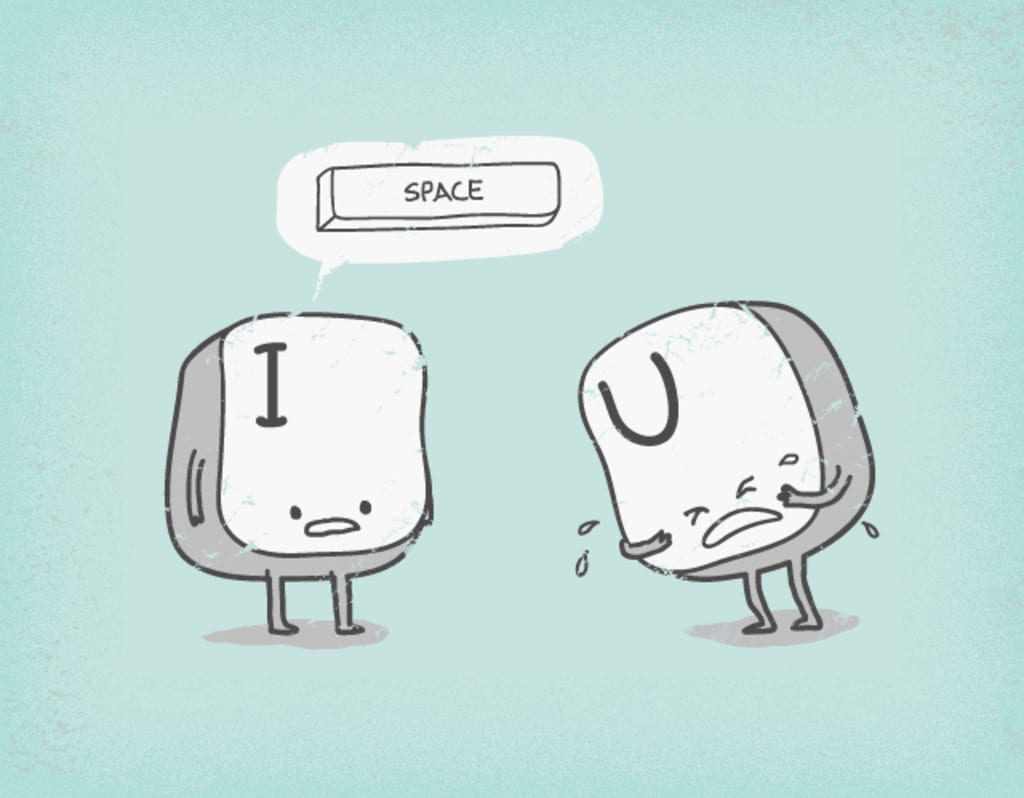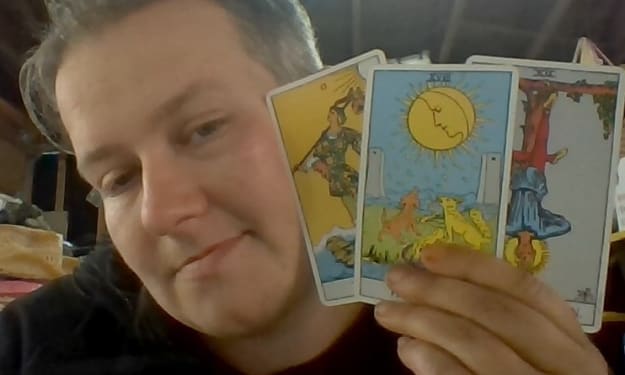What does "I love you" mean?
Inspired by a memory of a conversation with my youngest son.

Today I've been pondering a conversation I had with my youngest son one day. He had been going through a phase where he didn't like to say "I love you" back to me, his dad, or some of the family we've been doubled up with.
It brought into my mind how things were when I was his age.
At the time, my mom would've demanded I say "I love you" to whomever had said it to me. My aunts, my grandparents, other family. She wouldn't demand I say it to her, but would make it clear she'd feel really hurt if I didn't.
Thinking about that got me to thinking about an article I had read not long ago, about a woman who chose not to make her kids hug or kiss family or family friends just because they were showing them affection. She made a case for forcing that sort of reciprocity as a violation of their consent and physical personhood.
With my own childhood memories of how many times I didn't feel good about showing love to people my mom wanted me to do it with; many of whom were people I barely knew - family or not, got me to thinking about how I definitely want to raise our kids with a strong understanding of consent and feeling like it's okay for them to say no.
Additionally, I remembered some conversations with my DM; their dad, throughout the years. We talked about how things like compliments, apologizies, and "I love you's", should only be said when they are meant, and never forced. It's a value we've always agreed on.
That got me to wondering what we've already taught our kids, when it comes to love. Especially in what it means to say "I love you" to someone.
So I asked my son; who was 6.5 at the time, "What do you think it means to say "I love you" to someone?"
He totally caught me off guard in the best way, by telling me it meant "Goodbye".
I had asked him this question while driving him to school, so I couldn't pick his brain until later. Though that was good. It gave me time to think about how he could've arrived at the conclusion that saying "I love you" meant saying "Goodbye", and how interesting it was that he didn't want to say it to people, if he thought that's what it meant.
I took that day to think about it.
When I examined how I and other adults around him have used the phrase, we did often only say it when someone was leaving. Like on the phone, we'd often say, "Okay, I love you. Bye."
Or when he was going to a friends house, when I'd drop him off, I'd say "I love you. See you in a while."
Same thing when I'd drop him off at school.
Then when I thought about how my DM and I used the phrase, it was very similar. It was usually when we were going to be physically apart for a while, or knew we weren't going to talk for a little bit.
I thought about growing up, and how things were with my own family to do this day. "I love you" often has only been reserved for bedtimes and goodbyes.
We never said it as a "Hello".
Nor did we say it just randomly during the day.
There were plenty of private moments when my DM & I would say "I love you" to each other. Though even most of those were during the heat of passionate moments, or during times when emotional distress was high.
In thinking about it, I could see very easily, how my six year old had come to associate saying "I love you" with saying "goodbye". Which he later told me, he just didn't feel like always saying. Which makes total sense.
That day ended up inspiring several conversations with both of our sons.
It didn't unfortunately make it into a conversation between my DM & I, or all four of us. Though it definitely had an impact, as me and the boys continued on that week, discussing what it means to say "I love you", which later came up in couples counseling as I struggled to get both of us to define what we loved about loving each other (a long story for another time).
First, this required sitting my youngest down, and attempting to describe for him, what people intended to say when they said "I love you", rather than what they were doing - wrapping it into goodbye.
I affirmed for him, that we adults were totally weird and silly about the way we did things, and that I would do all I could to help him understand our silliness. Starting with this moment.
Being how young he is, I went with something fairly simple. I told him that when me or his dad or his grandparents say, "I love you", what they were saying is "I really like you and want you to know I really like you". Which was too simple, so we discussed it a little more. Though something still felt out of place when we were done, and this lead me to having a conversation with my therapist at the time; in solo and couples cousneling, about what "love" was - a question he admitted he hadn't been asked by other clients yet, and wasn't sure he could properly answer. We both laughed at the absurdity of trying to define "love" in such a simple way, and then agreed that the closest we could come to in that moment, was that "love" is "deep appreciation".
Which gave me a reasonable starting point for discussing it more with the kids. Which became even more interesting, cuz how do you describe to a 6 year old, what "appreciation" means?
It might seem simple enough off the cuff, but really, it's just as complicated as describing what love is and what it means when we say "I love you" to another person.
Which, I somehow thought I could neatly define fair quickly.
No dice.
The conversation has continued to this day.
Not just with the boys, but also with my DM, and now with many tarot and life coaching clients of mine.
Though I'm not complaining about that at all.
It's fun to watch the definitions grow.
So far, we've decided that there are many different kinds of "I love you's" and meanings that go with them...
There's "I love you" that we say to our nuclear family - cousins, grandparents, siblings, step-siblings, and family friends. Which usually means, "I enjoyed spending time with you, miss you already, and look forward to seeing you again soon". Which is often why that's paired with a "Goodbye" or a "Goodnight", instead of a "Hello" or "Good Morning".
Then there's the "I love you" we say to our parents and children.
My two boys arrived a combination answer for what they mean when they say I love you to me. Which is "I am happy for all you do for me and am feeling really happy". Which is why they often hug me when they tell me that they love me.
When I say it to them, I am usually saying "You're important to me and bring me a lot of happiness. I'm so happy you're in my life and think you're so very special that I wanted to tell you."
We decided that when we say it to our parents and people we like in a romantic way, it often means many of the same things. Though there's more to it. Like the proverb, "a picture can speak a thousand words". When we say "I love you" to a romantic partner, it means so many things. Often, unfortunately never clarified with each other.
It can mean things like, "I'm really glad we met and are together", like when spoken randomly when spending time with them, and realizing you really appreciate those memories being made with them.
And "I value your presence in my life". Such as when our partner helps us figure something out, or was there for us when we were having a hard time, and we respond with, "Thankyou. I love you so much".
In moments where we're having fun with our partners, or recognize how well we go together with them. It can mean, "I feel totally in alignment with you, and with myself. I deeply appreciate our connection".
There are obviously so many more things that "I love you can mean".
Which is why I'm going to leave you with the task of defining what "I love you" means to you. Feel free to share it in the comments if you feel called to do so.





Comments
There are no comments for this story
Be the first to respond and start the conversation.